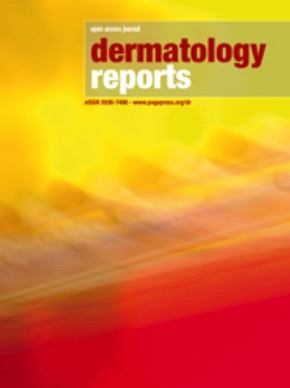Durable complete response in a patient with BRAF-mutated advanced melanoma with ocular and skin toxicities from BRAF/MEK targeted therapy after immune checkpoint inhibitor treatment: a case report
All claims expressed in this article are solely those of the authors and do not necessarily represent those of their affiliated organizations, or those of the publisher, the editors and the reviewers. Any product that may be evaluated in this article or claim that may be made by its manufacturer is not guaranteed or endorsed by the publisher.
Authors
Here we report the case of a woman suffering from advanced melanoma who developed severe toxicities with BRAF and MEK inhibitors (BRAFis, MEKis), given as second-line therapy after failure of immunotherapy, who achieved a complete and durable response lasting for over 5 years. Significant progress has been achieved in the treatment of advanced melanoma with immune checkpoint inhibitors (ICIs) and targeted therapies using BRAFis and MEKis. While these treatments improve survival, they also pose risks of severe toxicities. Notably, when targeted therapy follows immunotherapy, immune-mediated toxicities may emerge months later due to tumor microenvironment modulation. Despite these risks, both approaches offer a durable response in eligible patients. Further understanding is needed to determine how prior immunotherapy may influence subsequent toxicity risks of target therapy. Understanding these factors could optimize treatment strategies and improve patient outcomes.
How to Cite

This work is licensed under a Creative Commons Attribution-NonCommercial 4.0 International License.








